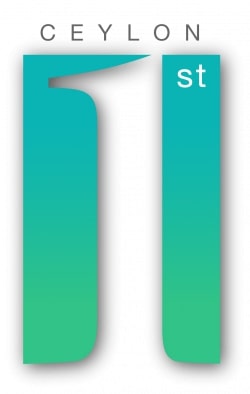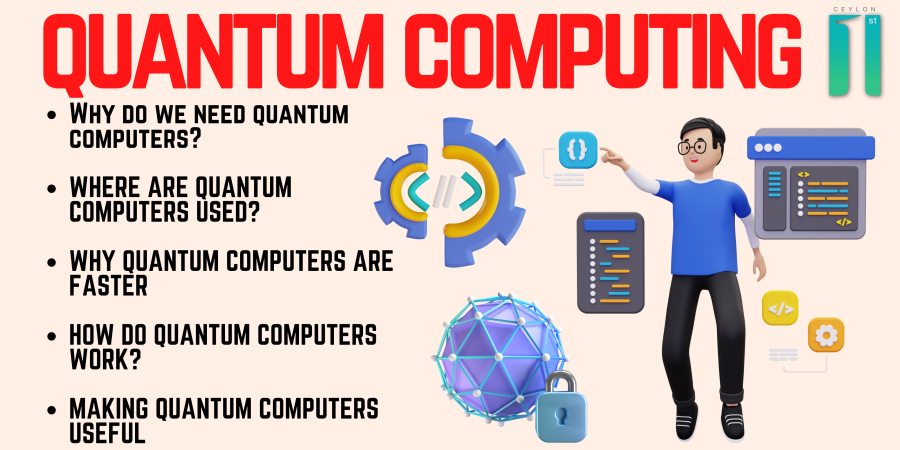Quantum computing is a field of computer science that uses the principles of quantum theory to build computing devices and algorithms. Unlike classical computers, which store and process information using bits represented as binary digits (0s and 1s), quantum computers use quantum bits, or qubits. Qubits have some unique properties, such as being able to exist in multiple states simultaneously, that allow quantum computers to perform certain types of computations much faster than classical computers.
Quantum computers have the potential to solve complex problems that are currently beyond the reach of classical computers, such as simulating quantum systems, optimizing large-scale systems, and cracking certain encryption algorithms. However, building and using a quantum computer is a challenging task, due to the highly sensitive and fragile nature of qubits and the difficulty in controlling and manipulating them. Nevertheless, significant progress has been made in the field in recent years, and there are now several companies and research organizations working to develop practical quantum computing systems.
Why do we need quantum computers?
Quantum computers have the potential to solve a wide range of problems that are difficult or impossible for classical computers. Here are a few examples:
- Simulating quantum systems: One of the key benefits of quantum computers is their ability to simulate quantum systems, such as molecules and materials, with greater accuracy and efficiency than classical computers. This could have important applications in fields such as chemistry, material science, and drug discovery.
- Optimizing large-scale systems: Quantum computers can use quantum algorithms to solve optimization problems, such as the traveling salesman problem, more efficiently than classical computers. This could have important applications in fields such as logistics, finance, and energy management.
- Cryptography: Certain encryption algorithms that are currently used to secure communications and protect sensitive information, such as RSA and Elliptic Curve Cryptography, can be broken by a large enough quantum computer. On the other hand, quantum computers can also be used to create new, more secure forms of encryption.
- Machine learning: Quantum computers have the potential to perform machine learning tasks, such as pattern recognition and data analysis, faster and more efficiently than classical computers.
Overall, quantum computers are a new and powerful tool that have the potential to impact many fields and enable breakthroughs in areas where classical computers have reached their limits.
Where are quantum computers used?
Quantum computers are still in the early stages of development, and their use is currently limited to research and experimentation. However, there are already several applications and domains where quantum computers are being used or could be used in the future, including:
- Scientific simulations: Quantum computers can be used to simulate quantum systems, such as molecules and materials, with greater accuracy and efficiency than classical computers. This could have important applications in fields such as chemistry, material science, and drug discovery.
- Optimization problems: Quantum computers can use quantum algorithms to solve optimization problems, such as the traveling salesman problem, more efficiently than classical computers. This could have important applications in fields such as logistics, finance, and energy management.
- Cryptography: Certain encryption algorithms that are currently used to secure communications and protect sensitive information, such as RSA and Elliptic Curve Cryptography, can be broken by a large enough quantum computer. On the other hand, quantum computers can also be used to create new, more secure forms of encryption.
- Machine learning: Quantum computers have the potential to perform machine learning tasks, such as pattern recognition and data analysis, faster and more efficiently than classical computers.
- Financial modeling: Quantum computers can be used to model complex financial systems, such as stock markets, more efficiently than classical computers.
- Supply chain optimization: Quantum computers can be used to optimize supply chain management, such as finding the most efficient routes for shipping goods.
- Artificial intelligence: Quantum computers have the potential to enhance artificial intelligence algorithms, such as deep learning, by providing faster and more efficient data processing.
These are just a few examples of the potential applications of quantum computers. As the field continues to advance, it is likely that new and exciting uses for quantum computers will be discovered.
Why quantum computers are faster?
Quantum computers are faster than classical computers for certain types of computations because they use quantum bits, or qubits, which have unique properties that allow them to perform certain operations more efficiently. Here are a few reasons why quantum computers are faster:
- Parallelism: One of the key properties of qubits is that they can exist in multiple states simultaneously, known as superposition. This allows a quantum computer to perform many calculations in parallel, without the need for sequential processing.
- Interference: Another important property of qubits is that they can interfere with each other, which allows a quantum computer to amplify or cancel out certain results based on their relative phase. This allows a quantum computer to find the solution to a problem much faster than a classical computer.
- Quantum entanglement: Quantum entanglement is a phenomenon in which two or more qubits become correlated in such a way that the state of one qubit cannot be described independently of the other qubits. This allows a quantum computer to perform certain operations faster than a classical computer, by encoding information in the correlations between qubits rather than in the state of individual qubits.
Overall, these properties of qubits allow quantum computers to perform certain types of computations much faster than classical computers, by allowing them to take advantage of the properties of quantum mechanics in ways that classical computers cannot. However, it is important to note that quantum computers are not faster than classical computers for all types of computations, and there are still many challenges to be overcome in order to build a practical and scalable quantum computer.
How do quantum computers work?
Quantum computers work by harnessing the principles of quantum mechanics to perform calculations. The basic building block of a quantum computer is the quantum bit, or qubit, which can exist in multiple states simultaneously, known as superposition. Unlike classical bits, which can only be either 0 or 1, qubits can represent a range of values between 0 and 1, allowing them to store and process more information than classical bits.
In a quantum computer, the qubits are used to represent the states of a quantum system, such as an atom or a photon. By applying quantum operations, or gates, to the qubits, the state of the quantum system can be manipulated to perform a calculation. For example, a simple quantum operation might involve rotating the state of a qubit by a certain angle, or entangling the state of two qubits so that their properties become correlated.
Once the calculation is complete, the state of the qubits is measured to obtain the result. Because qubits can exist in multiple states simultaneously, the result of a quantum calculation is a probability distribution over possible outcomes, rather than a single definite result. In order to obtain a definite result, the calculation must be repeated many times and the results averaged to obtain an estimate of the true result.
Quantum algorithms are designed to take advantage of the unique properties of qubits, such as superposition and entanglement, to perform calculations that are difficult or impossible for classical computers. Some well-known quantum algorithms include Shor’s algorithm for factorizing large integers, Grover’s algorithm for searching an unsorted database, and the HHL algorithm for solving linear systems of equations.
Quantum computers are still in the early stages of development, and there are many challenges that must be overcome in order to build a practical and scalable quantum computer. However, the field is advancing rapidly, and researchers are making progress towards the development of a useful and usable quantum computer.
Making quantum computers useful?
Making quantum computers useful and practical for real-world applications is a major goal of the field of quantum computing. There are several challenges that must be overcome in order to achieve this goal, including:
- Scalability: Currently, quantum computers are limited in the number of qubits they can use and the size of problems they can solve. In order to make quantum computers useful, they must be scaled up to have more qubits and be able to solve larger and more complex problems.
- Reliability: Quantum computers are still relatively prone to errors, due to the delicate nature of quantum systems and the difficulties in controlling and manipulating qubits. In order to make quantum computers useful, the reliability and stability of qubits must be improved to the point where quantum computers can perform complex calculations without producing significant errors.
- Noise and decoherence: Quantum systems are susceptible to noise and decoherence, which can cause errors in quantum calculations and reduce the accuracy of the results. In order to make quantum computers useful, the impact of noise and decoherence on qubits must be reduced, either by improving the hardware or by developing algorithms that are robust to these effects.
- Integration with classical systems: Quantum computers must be integrated with classical computing systems, in order to perform the types of calculations that are required in real-world applications. This includes developing software and programming languages that are suitable for quantum computing, as well as interfacing quantum computers with classical data storage and processing systems.
- Ease of use: Finally, in order to make quantum computers useful, they must be made accessible to a wide range of users, including researchers, engineers, and scientists who may not have a background in quantum computing. This requires developing user-friendly software and interfaces, as well as providing training and support to help users get started with quantum computing.
These are just a few of the challenges that must be overcome in order to make quantum computers useful. However, the field of quantum computing is rapidly advancing, and researchers are making progress towards these goals. By working to address these challenges, it is hoped that quantum computers will one day become an important tool for solving complex problems in a wide range of fields and applications.
CEYLON FIRST



Leave feedback about this